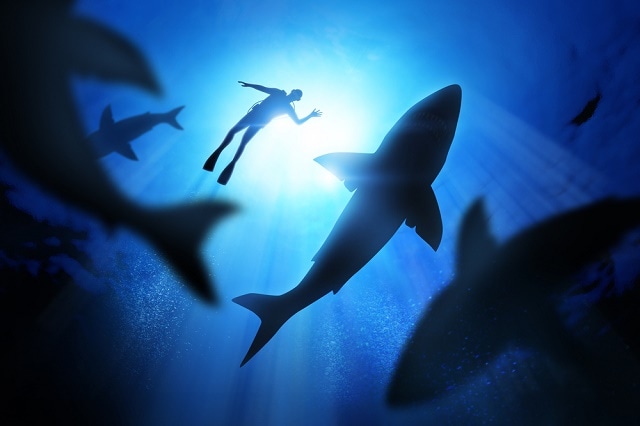May 24 2016
Scientists from UNC-Chapel Hill and Duke University are analyzing the capability of drones to sense sharks in coastal waterways. The drone-detection technique could notify swimmers to the presence of sharks in the future.
 Image Credit: solarseven | Shutterstock.com
Image Credit: solarseven | Shutterstock.com
In a joint research supported by North Carolina Aquariums, the scientists are determining whether drones can efficiently locate bonnet head sharks in various water conditions and habitats.
We’re really interested in the role that these kind of predators take on in coastal systems. We’re also really interested in just knowing when there might be sharks there. This is one of the first studies aimed at understanding how well we’re able to detect sharks and that’s a key component for any kind of operational use. For example, if you wanted to fly the drones along a beach to see if there were sharks there, you’d really want to know how likely you were to see sharks with that type of technology.
Dave Johnston, Assistant Professor, Duke University
Over the past year, scientists have performed a number of experiments with decoy sharks and discovered that the drones are able to consistently sense the decoys.
“Our surveys so far are telling us if the sharks are there and they’re less than a meter deep, or a little past a meter deep, then we should be able to detect them even when the water is murky,” said Johnston.
Using Drones to Detect Sharks
Scientists plan to amplify their detection surveys into different kinds of habitats to check how well the drones execute the task. Eventually, they want to aim to create a framework that would permit other scientists to exploit drones to sense all kinds of sharks in any coastal area.
Johnston explained that the drone-detection technique would ultimately help alert swimmers to shark’s presence.
Here’s an opportunity for us to use some pretty powerful small computers on board a very small aircraft to take us into a real-time detection situation. And that’s where we’d like to be a few years down the road.
Dave Johnston, Assistant Professor, Duke University
Apart from their study on sharks, scientists at the Unoccupied Systems Facility at the Duke Marine Lab are using drones to follow and study other marine species, including seals and sea turtles; examine marine debris on remotely located islands and beaches globally; and plot estuaries alongside the U.S. East Coast.
Founded in 2015, this facility is one of the handful facilities located nationally – and one among two in North Carolina – that has received an exemption from the Federal Aviation Authority to utilize drones for research purposes.
Starting this summer, this facility is providing courses to guide working professionals and students on how to effectively utilize drones in coastal conservation and for research purposes. It is also expanding drone-centered educational outreach programs in eastern North Carolina for local high school students.